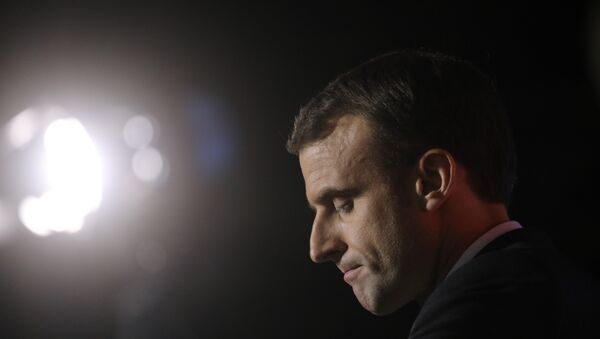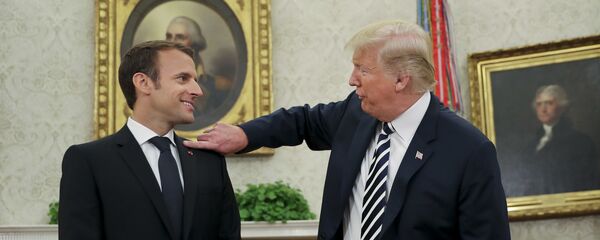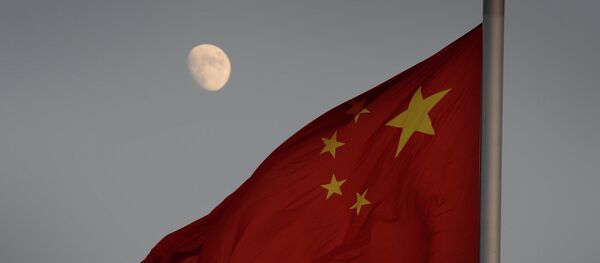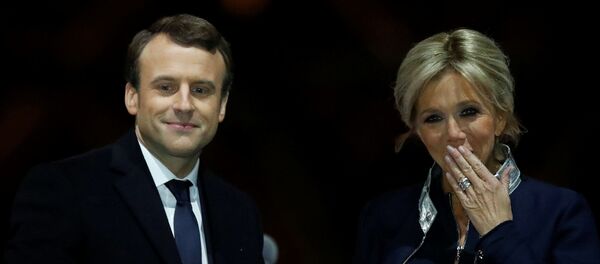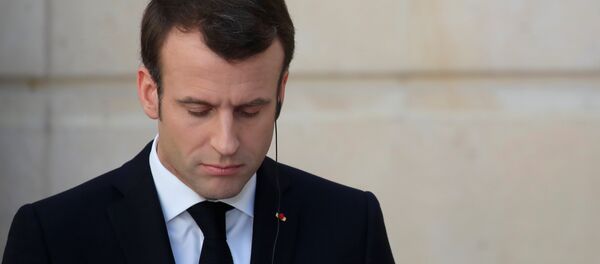Macron's remarks came a week after the European Commission published a ten-point list on the balancing of relations with Beijing amid China's growing economic and political clout. The French President also urged the EU to "confront the United States and China, which remain allies on certain issues". He claimed that the EU has what he described as "systemic opponents" who are both trading partners and investors. He warned the EU countries not to negotiate on investments in infrastructure and strategic funding on a bilateral basis, urging them to jointly coordinate their actions at the EU level
Sputnik discussed EU-China relations with Loren Puette, director of market research at ChinaAg.
Sputnik: The French president urged the EU member states to focus more on the geopolitical and strategic aspects of relations with China; what do you think was the reason for Macron to address this issue, and is it ever possible then to build such a kind of a relationship between the EU and Beijing?
Loren Puette: It appears to me that Macron is drumming up support for his recent initiative. Earlier this month, in March, the Council of the EU approved a regulation that would establish a framework for screening foreign direct investments into the EU.
If a Chinese company would come in and purchase something in France or Germany, they'd be primarily concerned with whether that would create a monopoly or out-compete local industries, so now they're shifting towards something a little bit more strategic.
READ MORE: Italy's Belt and Road Deal Sparks EU Concerns Over Future Relationship
So they're going to be focusing on critical sectors of concern within the European Union like aerospace, nano-tech, electronics, even the supply of food, which is my professional background, which is in agriculture.
So they're going to be looking at all these aspects, and Macron is just trying to circle the wagons and trying to broad-based support among all the EU member states because here and there's been certain EU member states that have taken on Chinese investment without much oversight.
Sputnik: Regarding Italy becoming the first G7 country to approve China's Belt and Road Industrial Initiative. Several trade agreements have been signed between Italy and Beijing; do you think we can expect the EU countries to follow in Italy's footsteps?
Loren Puette: I just think France and the rest of the EU are trying to remind that the number one priority is the European Union and not Chinese interest through this One Belt, One Road Initiative.
A lot of people have characterised it as a debt trap, others have characterised it as an opportunity for underdeveloped countries to receive funding and basically finance for certain investments, but the EU is, of course, extremely sceptical of this. Italy has had some economic issues and it's always looking for new ways to get an influx of cash.
So the One Belt, One Road is one way to do this, because the Chinese economy for the past two decades has really been booming, so they have a lot of cash on hand to do these types of investments, and what better than the European Union, which has been a relatively stable economy as a whole.
Sputnik: The US remains in a tariff war with both the EU and China, but while Beijing has been looking to boost trade ties with Europe amid the ongoing economic dispute with the US, what steps can Washington take now? I think it was Mike Pence a month or so ago, he was visiting the African nations imploring them to obviously deal with America in terms of trade agreements rather than China. They do seem to be somewhat under pressure, the American administration, with regard to retaining global power and trade, it seems as though we're in for a very interesting four or five yearsb and we've had Xi Jinping's address 18 months ago saying that he expected China to be a global trading power within 25 years, so it does seem like it's heading that direction; have you got any comments?
Loren Puette: Well it's just interesting because Mike Pence he said basically Africa needs to go to the US more, but at the same time they're cutting spending like foreign aid and development aid to Africa, while China is pretty much stepping in and replacing the US in terms of the amount of money they're investing in Africa. So there's saying one thing but not necessarily seeing it on the ground.
So you can say they're a little bit behind the times, the EU, and they can work with the US and even Australian in figuring out ways how best to approve certain investments and maybe not approve other investments, based on national security concerns.
So it's definitely going to be a growing process, the EU is a special case, because in the US, decisions are made at the federal level and not the individual state level, whereas within the EU you have individual member states and I believe the process is going to come down to individual members states choosing whether to let foreign investment come in or not. Typically China hasn't been stated all these policies, but it's pretty much understood that this is why they're doing it.
Sputnik: You've mentioned your area of expertise is agriculture. Is America positioning its agricultural industry and trying to increase exports in the loom of potential losses in other areas? What can you share with us in terms of this administration's strategy in agriculture, it is key for them retaining global percentage share of trade moving forward, then? What can you share with us?
So they're kind of sacrificing their agricultural goods in hopes that they can balance it out if not a little bit more with their industrial goods. I don't know if that's going to happen or not. Macron was in the Horn of Africa this month and one country that he stopped by was Ethiopia and China has reached out to Ethiopia and even poor Djibouti, which is a bordering country there.
READ MORE: Chinese Belt and Road Plan Shouldn't Become Political Tool — Italy's Lega
They said: "We're going to buy more soybeans from Ethiopia in order to counterbalance the losses that were receiving from the US because they're not supplying us anymore because of this trade war". So what you're going to see emerge is a decrease in trade, with the US and new trade patterns emerging, particularly in Africa, because they can step up to the plate, and a few other countries, but there's no way the US is going to be able to find a trading partner like China to buy all their agricultural goods as they have in the past, so I'm kind of pessimistic on that front.
The views and opinions expressed in this article are solely those of the speaker and do not necessarily reflect those of Sputnik
